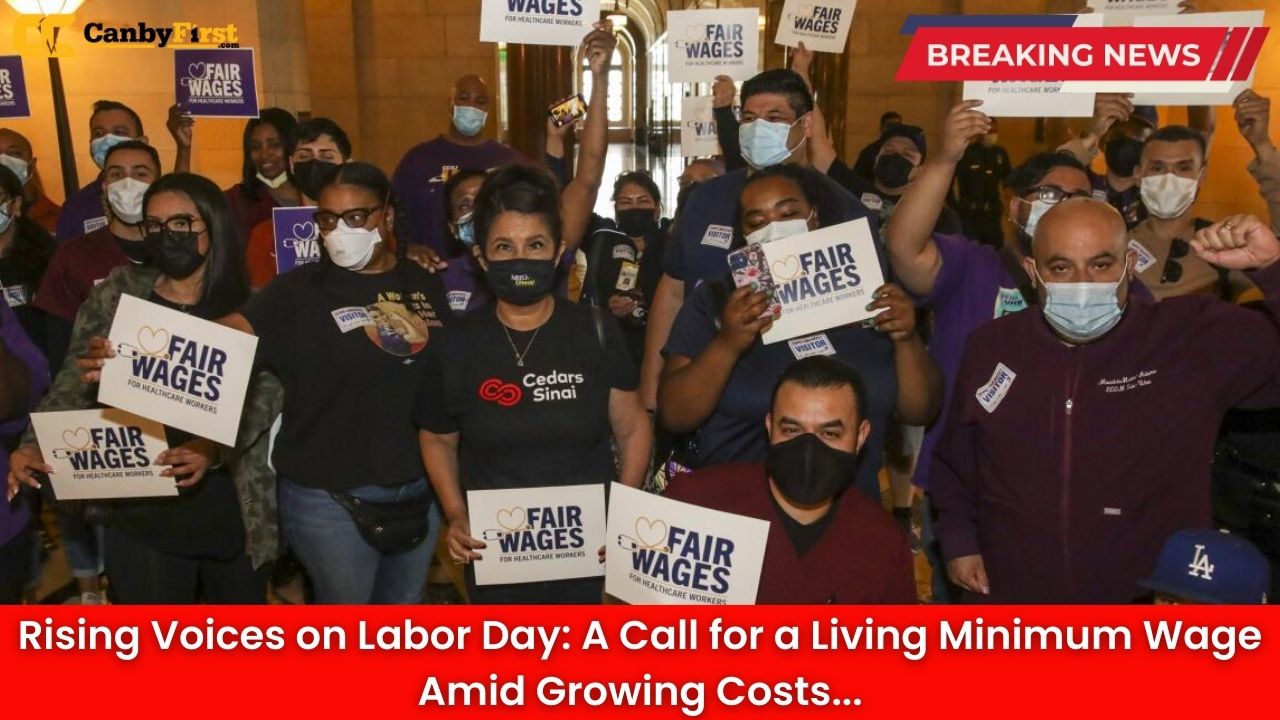New York, US: This Labor Day, as parades, rallies, and community gatherings honor the American workforce, a powerful refrain is echoing across the nation — workers and advocates are demanding that the minimum wage reflect the reality of skyrocketing living costs. From fast-food employees to healthcare aides, laborers say that wages frozen in time no longer match the soaring price tags of housing, food, transportation, and childcare.
A Holiday With a Message
Labor Day has long stood as a tribute to workers’ contributions, a moment for both rest and reflection. But this year, the celebration comes with a growing urgency: families across the country are struggling to make ends meet despite working full-time jobs. Leaders in labor movements argue that the minimum wage — stagnant at the federal level for over a decade — is no longer a meaningful safeguard against poverty.
The Crisis of Rising Costs
Over the past several years, the cost of living has outpaced wage growth in nearly every major city. Rent prices alone have risen sharply, creating situations where one paycheck often isn’t enough for a roof overhead. Groceries and healthcare bills, too, consume larger chunks of household budgets. For millions of full-time workers earning minimum wage, the math simply does not work. Advocates point out that the concept of a “working poor” class has become entrenched, undermining the very purpose of employment as a pathway out of hardship.
Also Read
Workers Speak Out
On this Labor Day, the stories are deeply personal. A cashier in Queens, working two jobs, speaks of barely covering rent while sacrificing healthcare. A warehouse worker in the Midwest reports being forced to choose between paying utility bills and buying school supplies for his children. Across states, these accounts show a pattern: wages may cover the hours, but they cannot cover life’s necessities.
The Argument for a Living Wage
The call being made is not just for a higher wage floor but for a living wage — one tied to the real cost of living in each region. A living wage would ensure that a full-time worker could afford basic human needs: food, shelter, transportation, medical care, education — without the need for multiple jobs or continual debt. Proponents argue that this approach not only improves individual dignity but strengthens the broader economy, as workers with disposable income reinvest directly into their communities.
Business and Policy Perspectives
Opponents of wage increases often raise concerns about the burden on small businesses, warning of reduced hiring or rising prices if mandated wages climb too high. However, workers’ advocates counter that stagnating wages create long-term economic instability, keeping millions of earners in a cycle of poverty that eventually weighs on public assistance systems. In several states where higher wage laws have been enacted, workers’ groups point to positive outcomes, noting boosted morale, increased productivity, and lower employee turnover.
A National Test of Priorities
The debate over wages brings into focus a larger question: what does the country owe the people who keep its cities running, its restaurants cooking, its warehouses moving, and its hospitals caring? As America honors its labor force on this holiday, the decision of whether to raise the wage floor becomes more than just a policy question. It is a measure of society’s commitment to ensuring that work and dignity go hand in hand.
Looking Forward
This Labor Day, the rallies are not just commemorative—they signal a momentum building. Grassroots organizations, unions, and advocacy groups are intensifying their campaigns, demanding legislative change at state and federal levels. The push is clear: economic justice through a fair wage that reflects the true cost of living.
As the sun sets on another Labor Day in America, the call grows louder — the minimum wage, designed as a safeguard nearly a century ago, must now evolve to meet today’s realities. Workers are not asking for charity, they argue, but simply for a fair return on their labor in an economy that depends on them every single day.












